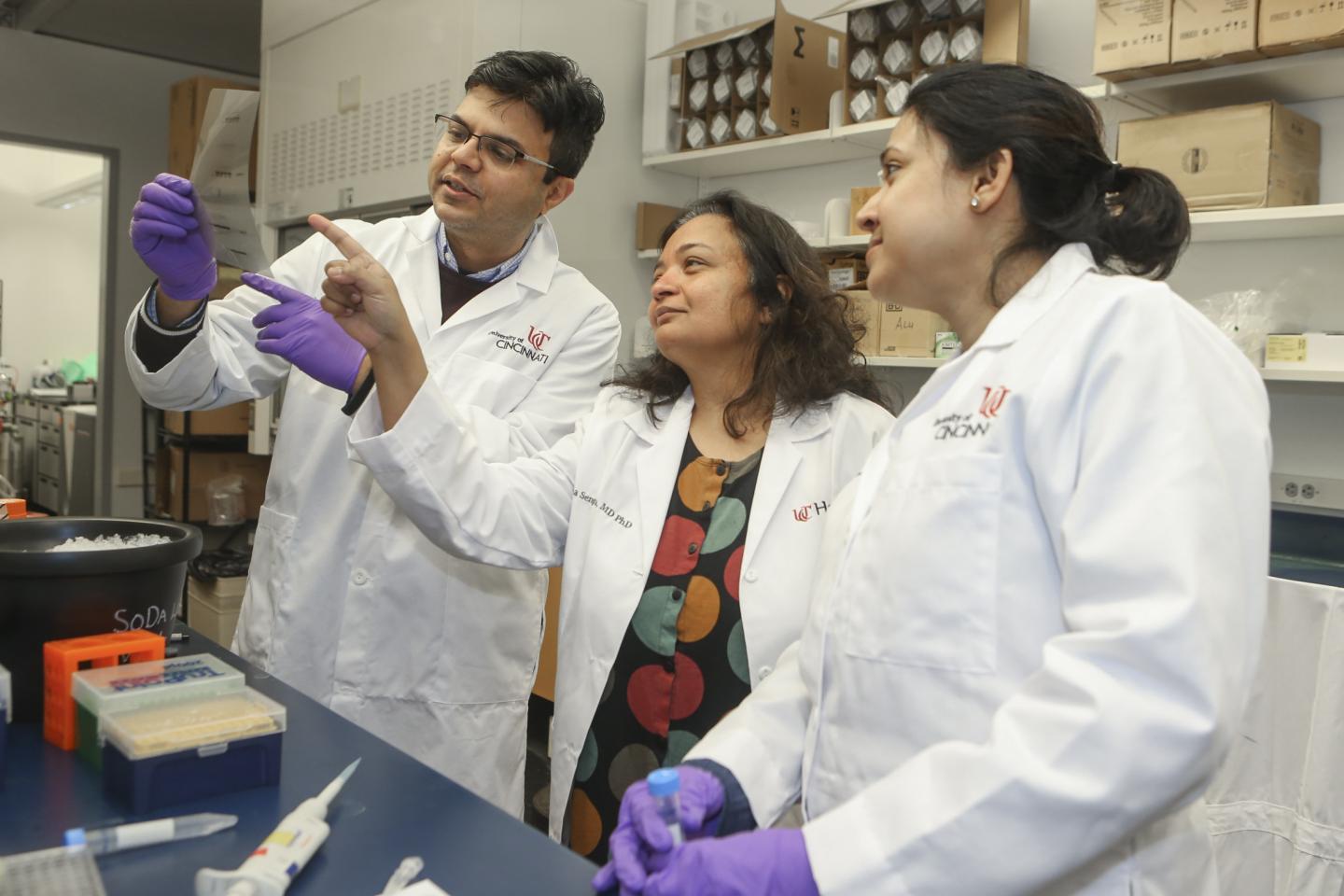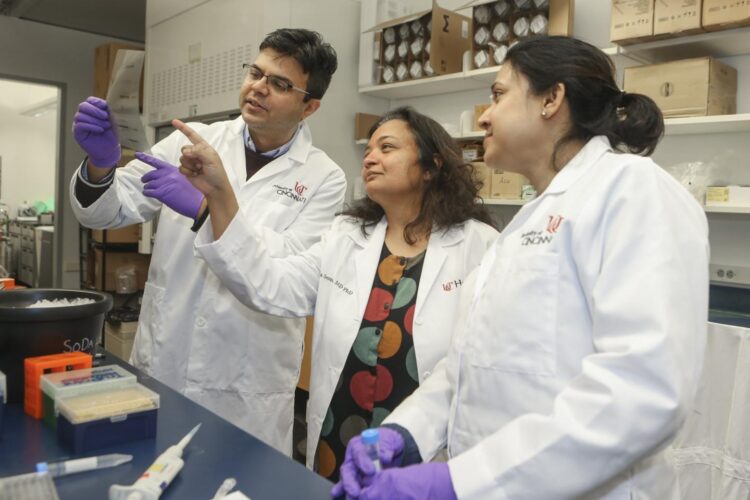University of Cincinnati colleges collaborate to develop app that studies whether music therapy can improve the brain from effects of cancer treatment

Credit: Joe Fuqua/UC Creative + Brand.
Music as medicine has become a more widely adopted concept over the years and considered as complementary therapy for a number of health issues.
However, University of Cincinnati’s Soma Sengupta, MD, PhD, wondered specifically how it could help patients with neurocognitive problems.
Sengupta, an associate professor of neurology at UC, UC Health neuro-oncologist and co-director of the UC Gardner Neuroscience Institute’s Brain Tumor Center, organized a meeting of the minds with experts across disciplines to come up with a solution for one particular problem: “chemobrain.”
“‘Brain fog or ‘chemobrain’ can impact memory, comprehension or speech, and it often lingers, making it difficult to carry out even some of the most basic everyday activities and greatly decreases overall quality of life,” Sengupta says. “I’ve always been interested in music therapy as a treatment modality for patients who have experienced other types of neurotrauma, like stroke, as well as those who are living with Alzheimer’s disease.
“I wanted to extend this option to cancer patients, who are living with neurocognitive issues due to their treatments and who even live with metastatic disease.”
Sengupta teamed up with experts at UC’s College of Design, Architecture, Art, and Planning (DAAP), and specifically Claudia Rebola, PhD, to meld design and technology and create a music app to target this group of patients.
Rebola and her team came up with the Active Receptive Music for Cancer patients (ARMCAN) program, an interactive music therapy app that will be used two ways: 1. A streaming-type music app allowing patients to listen and enjoy music of any genre or 2. A music creation app allowing patients to co-produce new tracks by adding sounds over the main score. In both cases, patients will listen or create for 15 minutes daily. Ten patients, five in each subgroup, will be assessed in the pilot study, which will take place over the course of 18 months.
“Patients will be randomized to be in either the Active Music condition — creating group — or the Receptive Music condition — listening group,” says Sengupta.
Researchers will first study this app for breast cancer patients/survivors, who historically experience a high rate of neurocognitive issues related to treatment. In addition to assessment using neurofunction tests and surveys, participants will also undergo MRI scans, so that researchers can see if and how their brains physically change with use of the app.
“This is a truly unique collaboration,” Sengupta says. “By combining all of our areas of expertise, we might find a tool to help patients with a number of neurocognitive issues that don’t currently have other effective options.”
###
Media Contact
Katie Pence
[email protected]
Original Source
https:/





